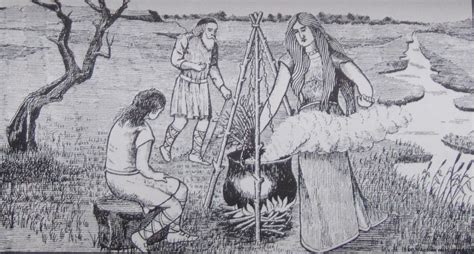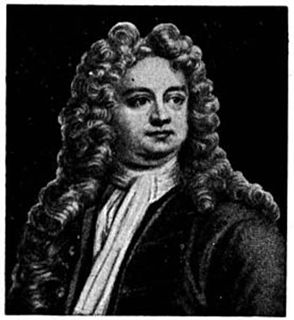A Quote by John Locke
Let us suppose the mind to be, as we say, white paper, void of all characters, without any ideas; how comes it to be furnished? Whence comes it by that vast store which the busy and boundless fancy of man has painted on it with an almost endless variety? Whence has it all the materials of reason and knowledge? To this I answer, in one word, from experience.
Related Quotes
Whence came I, whither go I? Science cannot tell us a word about why music delights us, of why and how an old song can move us to tears. Science is reticent too when it is a question of the great Unity – the One of Parmenides – of which we all somehow form part, to which we belong. The most popular name for it in our time is God – with a capital ‘G’. Whence come I and whither go I? That is the great unfathomable question, the same for every one of us. Science has no answer to it.
What is there in places empty of matter? and Whence is it that the sun and planets gravitate toward one another without dense matter between them? Whence is it that Nature doth nothing in vain? and Whence arises all that order and beauty which we see in the world? To what end are comets? and Whence is it that planets move all one and the same way in orbs concentrick, while comets move all manner of ways in orbs very excentrick? and What hinders the fixed stars from falling upon one another?
If one asks the whence derives the authority of fundamental ends, since they cannot be stated and justified merely by reason, one can only answer: they exist in a healthy society as powerful traditions, which act upon the conduct and aspirations and judgments of the individuals; they are there, that is, as something living, without its being necessary to find justification for their existence.
Whence arose all the horrid assassinations of whole nations of men, women, and infants, with which the Bible is filled; and the bloody persecutions, and tortures unto death, and religiosu wars, that since that time have laid Europe in blood and ashes; whence arose they, but from this impious thing called religion, and this monstrous belief that God has spoken to man?
Whence all this passion toward conformity anyway? – diversity is the word. Let man keep his many parts and you'll have no tyrant states . Why, if they follow this conformity business they'll end up by forcing me, an invisible man, to become white, which is not a color but the lack of one. Must I strive toward colorlessness? But seriously, and without snobbery, think of what the world would lose if that should happen. America is woven of many strands. I would recognize them and let it so remain.
It must be so,-Plato, thou reasonest well! Else whence this pleasing hope, this fond desire, This longing after immortality? Or whence this secret dread and inward horror Of falling into naught? Why shrinks the soul Back on herself, and startles at destruction? 'T is the divinity that stirs within us; 'T is Heaven itself that points out an hereafter, And intimates eternity to man. Eternity! thou pleasing, dreadful thought!









































